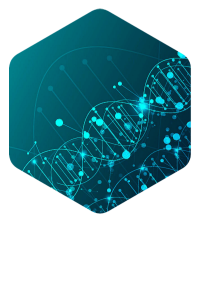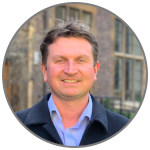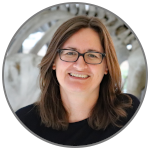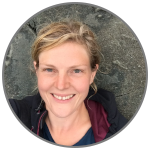Since Charles Darwin popularised the concept of the ‘Tree of Life’, the branching model of evolution has been widely acknowledged as a central principle in modern biology. Researchers in Cambridge are now challenging this thinking, recognising that many evolutionary processes, from genetic inheritance through to language and cultural evolution, are better represented as interconnected networks rather than a branching tree, termed the 'Network of Life'
Through dynamic and collaborative research across biological and cultural evolutionary systems, we aim to gain a deeper understanding of these networks of evolution which can drive a paradigm shift in modern evolutionary biology.
Collaboration and Engagement
Discussions and engagement at Functional and Evolutionary Genomics Theme meetings throughout Summer 2022 seeded the idea to explore the patterns of evolutionary biology across scales and systems. In December 2022, a further meeting brought together researchers from 9 Departments and Institutes across 3 Schools within the University, as well as partners at the Wellcome Sanger Institute, Anglia Ruskin University and the British Antarctic Survey to further explore synergies and cross-disciplinary perspectives in evolutionary biology, spanning plants, animals, humans, language, society and culture.
The group is actively developing close connections with the University Museums and Collections with a view to bring into the discussions the richness and diversity of specimens and material available in Cambridge. Research, teaching and engagement activities in this space are currently being developed, with evolutionary biology identified as a strategic priority for the School of Biological Sciences.
Key Collaborators
School of Biological Sciences: Ian Henderson (Plant Sciences), Richard Durbin (Genetics), Aylwyn Scally (Genetics), Chris Jiggins (Zoology), Emily Mitchell (Zoology), Eske Willerslev (Zoology), Rebecca Kilner (Zoology and Museum of Zoology), Beverley Glover (Plant Sciences & Botanic Garden), Sam Brockington (Plant Sciences & Herbarium), Julian Hibberd (Plant Sciences), Laura Itzhaki (Pharmacology), Renske Vroomans (Sainsbury Laboratory) and Ross Waller (Biochemistry).
School of Physical Sciences: Daniel Field (Earth Sciences), Liz Harper (Earth Sciences) and Liz Hide (Sedgwick Museum of Earth Sciences).
School of Technology: Guy Emerson (Computer Science and Technology)
School of Humanities and Social Sciences: Marta Mirazon Lahr (Archaeology and Duckworth Collection), Guy Jacobs (Archaeology), John Robb (Archaeology), Alastair Key (Archaeology), Rob Foley (Archaeology), Staffan Müller-Wille (History and Philosophy of Science) and Tim Lewens (History and Philosophy of Science).
School of Arts and Humanities: Ian Roberts (Modern and Medieval Languages and Linguistics), Marieke Meelen (Modern and Medieval Languages and Linguistics)
External partners: Mark Blaxter, Joana Meier, Kamil Jaron and Mara Lawniczak (Darwin Tree of Life Project, the Sanger Institute); Jane Francis, Katrin Linse, Melody Clark and Peter Convey (British Antarctic Survey); Jake Dunn (Anglia Ruskin University)
Work with us
We welcome opportunities to collaborate with industry partners, policy makers and academics. If you are interested in working with us, please contact Dr Abi Herrmann, Research Strategy Manager.






